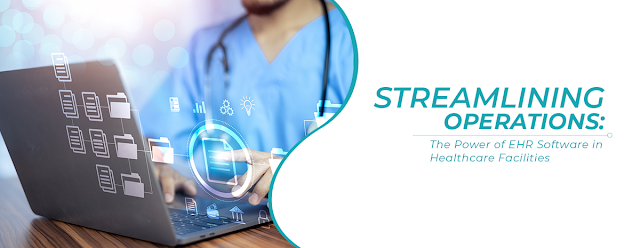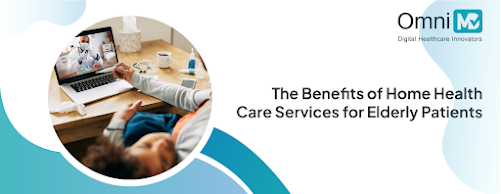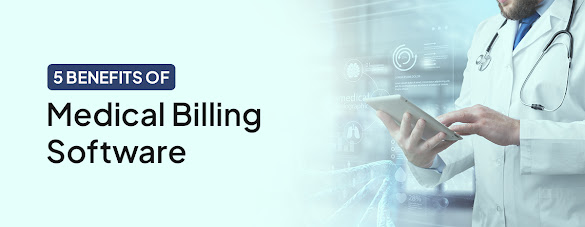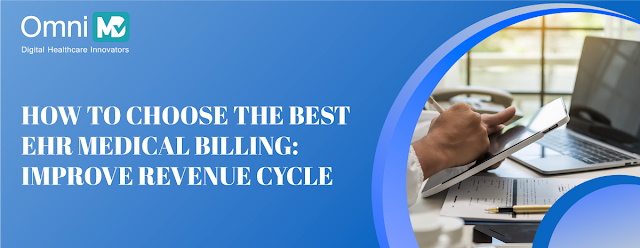Streamlining Operations: The Power of EHR Software in Healthcare Facilities
Today, several healthcare facilities are witnessing a high influx of
patients, which they could find difficult to manage. The high patient volume stresses
existing facilities and the infrastructure, requiring efficient and streamlined
operations processes and optimized workflows. It is also essential for clinics
and healthcare facilities to manage appointments on time, as rapid patient
turnover could pose significant challenges. Hence, time management is
fundamental to ensure patients receive care promptly without compromising
treatment and care quality.
Besides, the accuracy of patient documentation is vital for ensuring the continuity of care. Since paperwork can be time-consuming and even prone to errors, EHRs have become popular in healthcare facilities in the USA. Also, EHRs play a crucial role in maintaining compliance with the HIPAA Act. This is possible by safeguarding privacy and confidentiality while ensuring secure storage, transmission, and access to patient health information. So, in this blog, let's investigate how to streamline operations in healthcare facilities with the power of EHR software:
1. Streamlines Patient Check-ins:
With the help of such software, it is possible to eliminate the need for paper forms and reduce the waiting times for appointments and other tasks. Thus, the patient check-in process can be streamlined. EHRs thus allow electronic entry of data and minimize manual data entry. In this way, data accuracy can be improved for better management of the check-in process.
2. Enhances The Billing and Payment Processes:
With the help of EHRs, it is possible to enhance the billing and payment process in a healthcare setting. Tasks that once consumed significant time and had to be done manually can now be done quickly. Additionally, with the help of integrated billing modules, the creation and submission of accurate claims become simpler. This reduces errors and even accelerates the reimbursement cycles. It is possible to enable real-time eligibility verification and ensure the patient's insurance coverage while lowering billing complications and improving overall productivity.
3. Optimizes Appointment Scheduling:
This type of software provides several intelligent features that can be used for appointment scheduling. Thus, clinics can allocate appropriate time slots for different types of visits. With the help of this optimized appointment scheduling feature, efficient patient flow can be realized while bottlenecks can be reduced.
4. Streamlines Financial Reporting:
Financial reporting is a crucial aspect of healthcare operations. Comprehensive and appropriate software can be utilized to improve productivity as it addresses challenges related to financial reporting in a healthcare setting. Automating data collection and analysis makes it possible to eliminate manual and time-consuming processes and allows real-time access to accurate financial data. Therefore, healthcare administrators and financial teams can make informed decisions while optimizing resource allocation to identify further areas for improvement. This can ultimately enhance productivity and financial performance.
5. Provides Secure Messaging Features:
Modern EHRs are equipped with secure messaging features and telehealth capabilities. These can provide effective communication between clinicians and patients while saving unnecessary in-person visits. Patients can save time and obtain improved access to care.
6. Enhances Collaboration and Communication:
Effective communication and collaboration are the basis of successful care delivery. With the help of new technologies, it is possible to enhance communication and collaboration in a healthcare organization. Also, EHR Service Software that is equipped with AI-powered tools and cloud-based platforms can vastly improve patient outcomes. They allow healthcare professionals to ensure their staff works together efficiently and effectively while delivering superior patient care.
7. Facilitates Workflow Automation:
Efficient EHR System Software also provides streamlined processes that improve accuracy and
reduce administrative burden. Such EHRs also consist of tools that enable
effective task management so they can reduce errors and even improve healthcare
outcomes.
End Note
Medical care is
hectic nowadays, so it can be challenging to remain productive. However,
implementing efficient EHR software can help streamline workflows and ensure
your healthcare practice delivers the best service quality. Efficient
operations are vital for any healthcare setting as demand is increasing
constantly. Implementing EHR helps include many benefits, such as streamlining
operations, reducing administrative burden, improving patient flow, increasing
data accuracy, and supporting evidence-based decision-making.
The OmniMD EHR
software is smart, simple, efficient, connected, and secure. It is designed to
seamlessly gel with your workflows and provide the necessary streamlining for
your operations. This EHR allows you to easily manage documents, visualize your
patient's complete medical record, prescribe the right medication, remind you about
clinical summaries, and provide comprehensive analytics. This cloud-based EHR
System Software is always connected and updated so that the most recent
information about your patients is right at your fingertips. Contact us to know
more!




Comments
Post a Comment